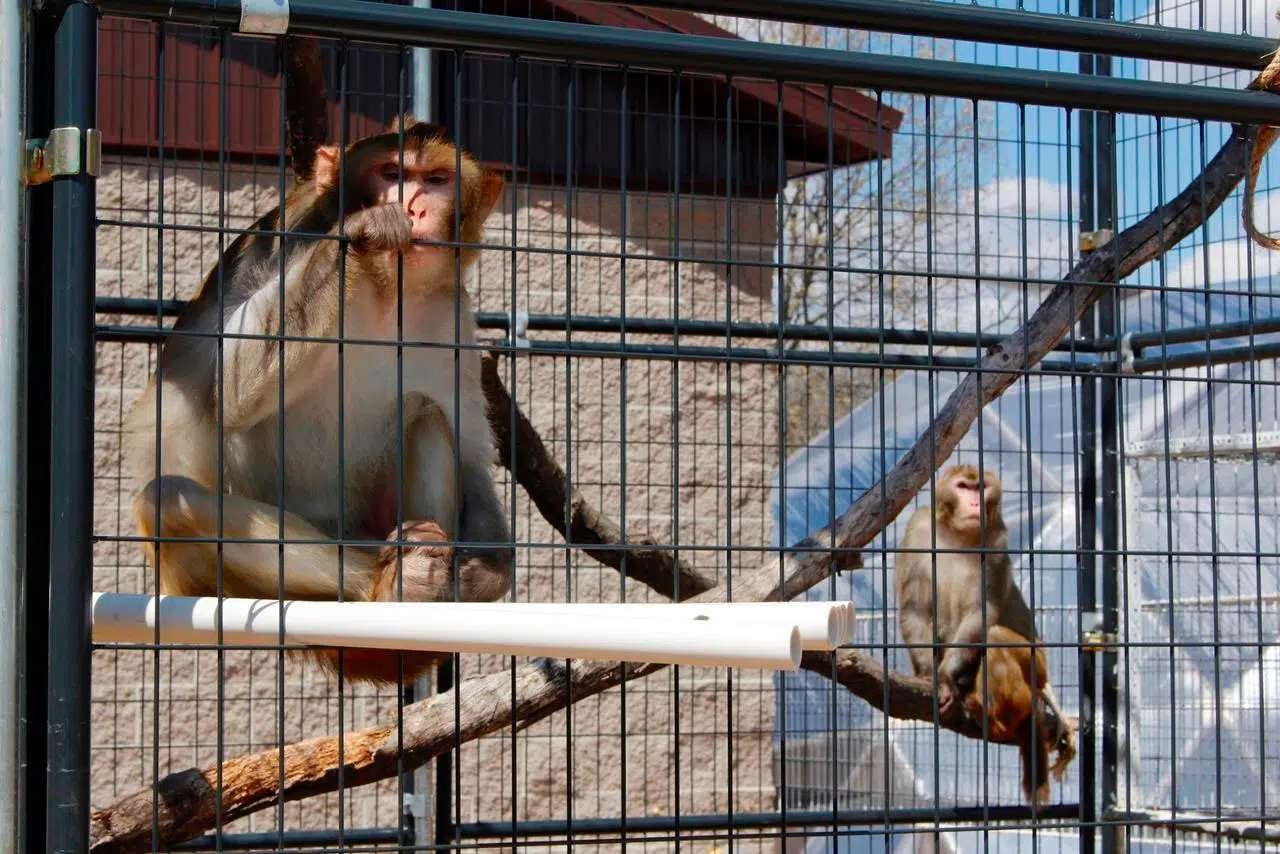
More research labs are retiring monkeys when studies finish
WESTFIELD, Wis. — Izzle, Timon, Batman, River and Mars spent years confined inside a lab, their lives devoted to being tested for the benefit of human health.
But these rhesus macaques have paid their dues and are now living in retirement — in larger enclosures that let them venture outside, eat lettuce and carrots, dip their fingers in colorful plastic pools, paint, and hang from pipes and tires — in relative quiet.
More research labs are retiring primates to sanctuaries like Primates Inc., a 17-acre (7-hectare) rural compound in central Wisconsin, where they can live their remaining years, according to the sanctuaries and researchers. For some monkeys, it’s their first time hanging out in the fresh air.
“Just to see them look around in amazement. You know it was all very calm and peaceful,” said Amy Kerwin, who worked for 15 years to get the Westfield, Wisconsin, sanctuary off the ground after being employed in a University of Wisconsin research lab.
